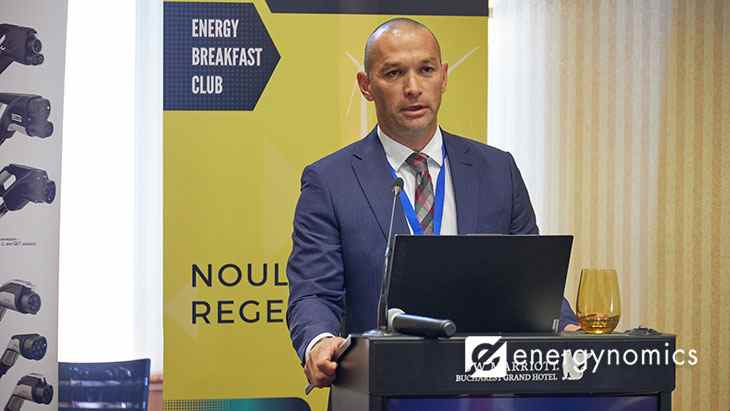The number of prosumers in Romania has reached 20,000, and by the end of next year it could increase fivefold, up to 100,000, amid the “enormous” interest in having their own energy generation capacities and avoiding additional payments on bills of electricity. The good news is that we are in a period where the market naturally brings substantial amounts of money in this area, said Zoltan Nagy-Bege, vice president of the National Energy Regulatory Authority (ANRE), during the conference “New wave of renewables”, organized by Energynomics.
“There will certainly be an interest in investments in the segment of power generation from renewable sources and on the part of consumers, both industrial and domestic. We see that there is already an interest from households. We have reached over 20,000 prosumers, which accumulate an installed capacity of 180 MW, and by the end of this year the figure could reach 30,000 prosumers. There are assumptions that by the end of next year it will reach 100,000 prosumers. The interest is enormous,” said Bege.
He added that investment is needed in this crisis period where there is a shortage of cheap electricity. This distortion is primarily caused by the price of natural gas and the European market model chosen many years ago precisely to support investment in renewable generation capacity. But the market model now produces “this very high price” in all European markets. At the same time, high prices encourage investors to focus especially on the area of electricity production from renewable sources.
Also, the new government plan calls for installing at least 7,000 MW in renewable units by 2030, but it is possible that this figure will increase, given that “we will need more”. To date, connection approvals have been granted for cumulative capacities of 2,800 MW in renewable units, and around 3,000 MW have already signed contracts for connection to the grid. Romania currently has multiple “consistent” sources of financing this sector, but the authorities are trying to avoid the situation of 2010-2012, when many developers of renewable projects announced investment plans, but did not complete them.
“We are trying to pay attention to the needs of the market and break the rigidity with which distributors and the energy transporter approach the issue of new connections. I think that most of the changes made to the connection regulation in the last two years were made in favor of those who want to invest, and some changes we made even at the suggestion of developers. We have to differentiate between developers and those who actually build and try to force them through regulations to build, not just develop and thus block the already limited [network integration] capacity,” added Bege.
If until 2016 there was an interest in investing in this sector, it decreased after this year, as a result of the termination of the application of the green certificate system. As a result, investment in green energy production has collapsed. However, the distributors and the energy carrier continued to allocate substantial amounts in the networks, and in the period 2018-2021 they allocated a total of 15 billion lei. In the same period, only 170 million lei were invested in the electricity production area in installed capacities of 70 MW in various technologies, not only renewable ones.
“It is clear that there will be differences compared to the first wave, because investors in the field have learned a lot during this time and there are many who propose hybrid projects. In addition, the energy storage is included in the scheme, which is necessary,” Bege said.
The conference “New wave of renewables“ was organized by Energynomics with the support of our partners: ABB, BCR, Eaton Electric, EnergoBit, EnergoPower, Enevo Group, Phoenix Contact, Photomate, REI Group, Simtel, Volt, Wiren.
